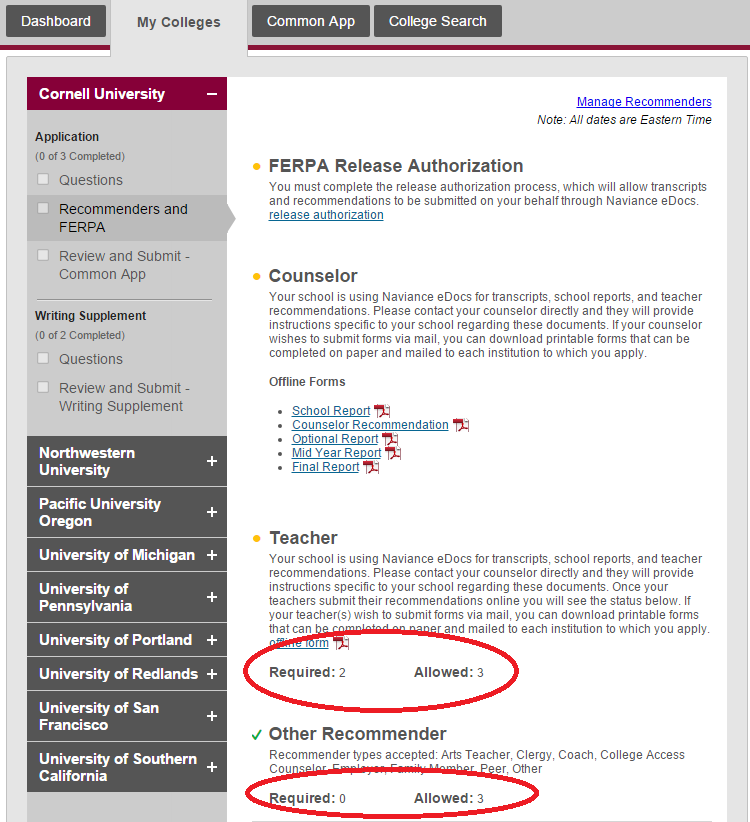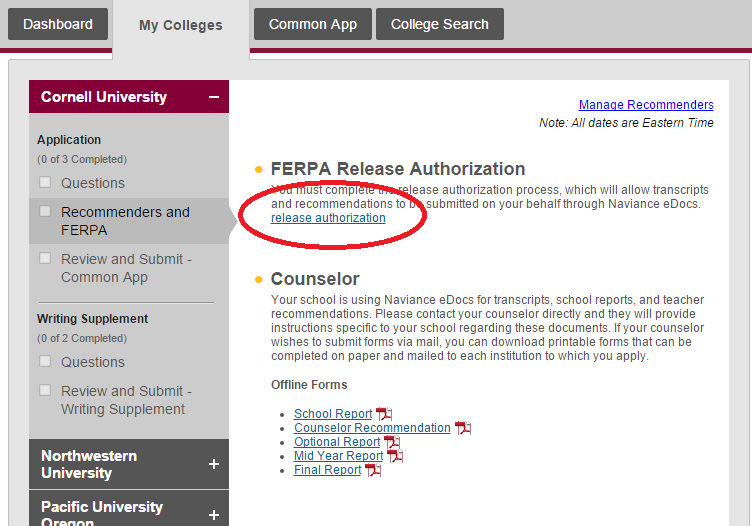Yes, by "Exhibits," I do mean people trying to sell us stuff. Before making the 3+ hour drive from L.A. to San Diego this morning (so I really should have carpooled with my mom, as she had offered, which would have saved an hour, but she was leaving at 5:00 and, well, I'm not a cheerful morning person), I looked through the exhibit descriptions, made my spreadsheet, sorted it by booth number, and prepared myself to journey from Aisle 100 all the way to Aisle 1400. Some exhibits had soft carpet, and my feet enjoyed the fluff. Good job, NACAC booth.
Disclaimers
Now, the lawyerly disclaimers. First, it is the end of a long day, so I'm feeling a bit chippy. No time for beating around the bush. To the point. Second, I skipped the exhibits that seemed to target colleges, like the exhibits with enrollment management voodoo. The reason: last time I checked, I am not a college. I went for the exhibits targeting counselors. Third, no one is paying me to say or not say anything. Fourth, these are my first impressions, not actual reviews. I haven't tried any of these products out, except for maybe seeing a demo. This is what I remember at the end of the day. For some exhibits, it's not much. But the silence, perhaps it speaks. In the words of my 3-year-old daughter, quoting her favorite Octonaut, Captain Barnacles: "Let's do this."
The "Task Tracking" Apps: Make Me a Freshman, Maia and Evolv.ng
I put the following apps in this category: Make Me a Freshman, Maia, and the unpronounceable yet still lovable Evolv.ng. The impression I get is that the counselor logs into the dashboard, creates or selects tasks for students, and then manages those tasks by sending texts / other reminders to students. Instead of emailing or texting students separately, you do it all from the dashboard. Maybe this will work. But my observation so far is that if I create super-detailed, wonderful checklists for my students, they tend to ignore them. 10 colleges X 10 tasks per college equals 100 tasks, which is an absurd number. Chances that students will tune me out: high. Go ahead and judge -- maybe I'm ineffective, or maybe my students are unmotivated.
The Social Media Police: The Social U
I see what you did there with the name. Clever you. This app lets students/parents obtain a report card for each of the student's various social media accounts, including Facebook, Twitter, and Instagram. Snapchat just takes care of itself, I'm told. Along with the grade (C- on Instagram), you get suggestions about what action to take. This is a good idea. Students need this. However, you probably won't find me asking my clients to pay $99 for 1 month or $129 for 3 months of this service.
Instead, I will refer them to what I am calling the Essaywise 3-Step Guide to Social Media Accounts. It's now yours, free! It's complicated, so listen up to the 3 steps:
- Log into your social media account.
- Delete any post that contains profanity, sexuality, alcohol, drugs, or anything you wouldn't feel comfortable saying in front of your grandmother.
- Don't make any more posts containing material referenced in Step 2.
The Storytelling Platform: Story2
"College counselors aren't trained in personal writing." You had me at hello...OK, so this statement, though true, doesn't capture the whole truth. When I talk to counselors who have been at it for a while, I find that they have a fairly good idea of what personal writing looks like. In any case, the idea behind this platform is that counselors can pay $15/student to use the Essaybuilder (I couldn't duplicate the "TM" for trademark that should follow this), which the rep told me helps with topic selection. Topic selection is the hardest part, no question. But talk to a dozen counselors, and you'll find a dozen creative ways they extract topics from even the most reluctant students. For example, I use emoji. Yes, topic selection is hard, but I don't know if it's $15 / student hard. In any case, I do like the story2 "Personal Narrative Rubric." Just reading that is a crash course in what an essay can hope to achieve.
The Simple Texting App: Calolo
Calolo gives counselors a dashboard they can use to send multiple texts to students, who can then respond when the task is complete. The counselor can then send a follow-up text. You might be thinking, "Isn't this one of the task-tracking apps you already dismissed?" No, I don't think so. The task-tracking apps were focused on creating a place for student and counselor to log in and meet. Calolo is more focused on the counselor. Tina, the founder, comes from a counselor background, and she made this to solve the problem of trying to keep up with lots of kids. To me, the benefit of Calolo, assuming it does what it's supposed to, is that it does not create yet another platform for students to use half-heartedly. It just lets me text my students more easily. And I would pay $6/student/year for that.
AdmitSee: The Essay Compilation App
AdmitSee lets students pay to see packages of successful application essays from similarly situated students. If I have a 3.5 GPA and a 1900 on my SAT and want to apply to UCLA, I can see what other applicants like me wrote. My question for the reps was, "I get why a student who isn't working with a counselor would use this. But why would I use this instead of an essay compilation book?" I got a few different answers. First, students like to click things and browse, not look at a book. OK, I get the convenience factor. Second, students can see what others like them have written to get a sense of what they should write. Not quite sold on this point. It's not like I tell my A students, "Welcome to the Essaywise Gold and Diamond Strategy" and my other students, "Get thee to the Essaywise Plan of Rust and Coal." Storytelling is storytelling, and anyone can do it, regardless of GPA. Third, students can see what other successful applicants have majored in to get a better idea of fit. I don't know if this is how I would go about finding fit. I put this in the "possible alternative to '50 Essays That Worked' book" category. For students who aren't getting attention from a counselor, whether independent or school-based, yes, I can see that it might fill a void.
The Extracurricular Yellow Pages: Blayz
Does anyone remember the Yellow Pages from days of yore? How quaint. So Blayz is trying to be the Yellow Pages by giving students one place to find extracurricular activities. The rep told me there are 90,000 listings. I don't know how there can be 90,000 good listings. Me of little faith. However, it is free, and it is a good idea, so I don't see much to lose.
The Find Your Major App: Celebrate Strengths
Celebrate Strengths is a survey that helps students figure out what types of majors would be good for them. It was originally from a business setting and has now been adapted to students because why not? They are in the process of adding 300 videos of professionals in different careers so students can "try on" different jobs. The output from the 25-minute student survey is a nice report, which looks very official. The promotional pricing is only $1/student, I was told. I also put this in the "not much to lose" category.
The Financial and Academic Matchmaker: College Raptor
If your name has a raptor in it, even a cute one, you had better be pretty awesome. College Raptor is trying to help students balance two factors when selecting schools: price and fit. I was skeptical. (Surprise.) First, let me describe what College Raptor is doing on the price issue. Yes, there are net price calculators out there, but it's not exactly convenient for families to go to 10 different college websites. College Raptor's idea is to bring the NPCs together. I asked how College Raptor can do that. Some colleges have actually shared their NPC formula directly with College Raptor. For those that haven't, College Raptor has "inferred" the formula. All this has allowed College Raptor to show the student one simplified NPC (with the option of entering in more info later). Maybe not perfect, but good enough?
Second, for the fit issue, College Raptor has its algorithm about what schools are good fits. Most of the college match tools I see are useless because they recommend schools my students won't attend. I feared the same here. I gave Bill a hypothetical student: 3.85 GPA, 2080 on the SAT, interested in biology. So College Raptor spits out a list of 9 schools. UCLA. Yes, my student would apply there. Grinnell? No, probably not. But that's not the end of the story. What College Raptor does with its list is categorize schools into reach / target / likely categories. Yes, we all know this is an art, not a science. But when it spits out the list of 9 schools, it is spitting out a balanced list (trust but verify...) of 9 schools. The great feature, I thought, was that if you don't like those "best fit" schools, you can just opt to see all the matches, not just the top 9. So, for example, if my student wouldn't go to Grinnell, I could just choose the next target school on the list. I see this as a fast way to generate ideas for students to explore. I could see sitting down with a student, using this tool to come up with a "big list" of schools, and sending the student off to do some research. I'm a fan of the whole College Raptor concept, though I didn't think I would be.
The Map Company: Campus Bird
Campus Bird makes interactive campus maps. Now that I think about it, it's more of a company marketing to colleges than to counselors. But in case you didn't know, I love maps! And these CampusBird maps are great. Here's a sample map for ASU. So -- I guess I'm just hoping we see more of these maps in the future. Rare is the student that actually gets to visit far-away schools before being admitted.
The Curtain Falls
With that, we come to the end, for now. More excitement to follow tomorrow, I'm sure.
Jon
Jon Perkins holds a B.A. in English from Stanford University and a J.D. from Harvard Law School. He helps students with their college, law school, and medical school applications.































